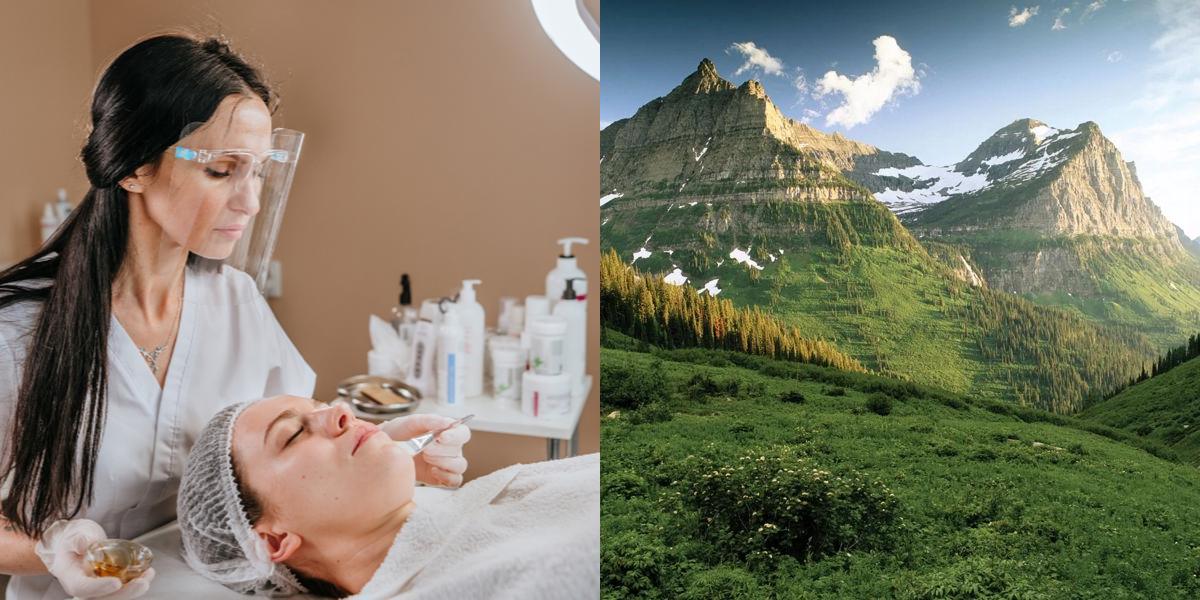How to Become an Esthetician in Montana

What is Esthetician?
An esthetician is a skincare professional who specializes in providing various beauty treatments and services to clients. Their main responsibility is to improve and maintain the health and appearance of the skin through techniques such as facials, exfoliation, hair removal, and more. They may also provide advice on proper skincare routines and recommend products to clients.
How do I get a job as an Esthetician?
Once you have obtained your esthetician certification, the next step is to find a job in the field. There are several avenues you can explore to land your first job as an esthetician.
-
Job Boards and Websites: One of the easiest ways to find job opportunities as an esthetician is to search online job boards and websites. Websites like Indeed, Monster, and CareerBuilder often have listings for esthetician positions. You can search by location and filter the results based on your preferences. Be sure to tailor your resume and cover letter to each job you apply for to increase your chances of getting an interview.
-
Networking: Networking is a valuable tool in any industry, and esthetics is no exception. Attend industry events, trade shows, and conferences to meet other professionals in the field. Building relationships with estheticians, salon owners, and spa managers can lead to job opportunities that may not be publicly advertised. Don't be afraid to reach out to people and ask for advice or assistance in your job search.
-
Salons and Spas: Many estheticians start their careers by working in salons or spas. These establishments often offer a range of skincare services and are always on the lookout for talented estheticians to join their team. Research local salons and spas in your area and inquire about any job openings. Even if they don't have any current vacancies, they may keep your resume on file for future reference.
-
Freelancing and Self-Employment: If you prefer more flexibility and independence, you can consider freelancing or starting your own esthetician business. This allows you to set your own hours, choose your clients, and work from different locations. However, it's important to note that freelancing and self-employment require additional skills, such as marketing and business management. It's also a good idea to gain some experience in a salon or spa before venturing out on your own.
-
Further Education and Specialization: As you gain experience in the field, you may decide to pursue further education or specialize in a specific area of esthetics. This can open up new job opportunities and allow you to offer more specialized services to your clients. Consider taking advanced courses in areas such as advanced skincare techniques, medical esthetics, or holistic skincare. This additional training can help you stand out from the competition and attract a wider range of clients.
Career Paths and Opportunities after Becoming an Esthetician
Becoming a certified esthetician opens up a wide range of career paths and opportunities. Here are some of the paths you can explore after obtaining your esthetician certification:
-
Salon Esthetician: Many estheticians start their careers working in salons. As a salon esthetician, you will provide a variety of skincare services, such as facials, waxing, and makeup application. You may also be responsible for retailing skincare products and recommending at-home skincare routines to your clients.
-
Spa Esthetician: Working in a spa is another popular career choice for estheticians. As a spa esthetician, you will provide relaxing and rejuvenating skincare treatments, such as massages, body wraps, and aromatherapy. Spa estheticians often work in luxurious settings and may have the opportunity to work with high-end skincare brands.
-
Medical Esthetician: If you are interested in the intersection of skincare and medicine, becoming a medical esthetician may be the right path for you. Medical estheticians work in medical spas or dermatology clinics and provide advanced skincare treatments, such as chemical peels, microdermabrasion, and laser therapy. You may also work closely with dermatologists and assist with pre and post-operative skincare for patients.
-
Makeup Artist: Many estheticians have a passion for makeup and choose to specialize in this area. As a makeup artist, you can work in various industries, such as film, television, fashion, or bridal. You may also offer makeup services for special events, such as proms and weddings.
-
Esthetics Educator: If you enjoy teaching and sharing your knowledge with others, becoming an esthetics educator can be a rewarding career choice. Esthetics educators work in vocational schools and training programs, teaching aspiring estheticians the skills and knowledge they need to succeed in the field.
-
Entrepreneurship: As mentioned earlier, some estheticians choose to start their own businesses or work as freelancers. This allows for more flexibility and the opportunity to create your own brand and client base. However, entrepreneurship requires additional skills, such as marketing, business management, and financial planning.
Final Thoughts
Becoming a certified esthetician is an exciting journey that opens up a world of career opportunities. Whether you choose to work in a salon, spa, medical setting, or start your own business, the demand for skilled estheticians is high. It's important to stay up-to-date with the latest skincare trends and techniques and continue to expand your knowledge through continuing education. With dedication, hard work, and a passion for skincare, you can build a successful and fulfilling career as an esthetician.
If you're considering a career shift or curious about different professional paths, Dreambound has written many guides to help you in making informed decisions. Here are a few:





